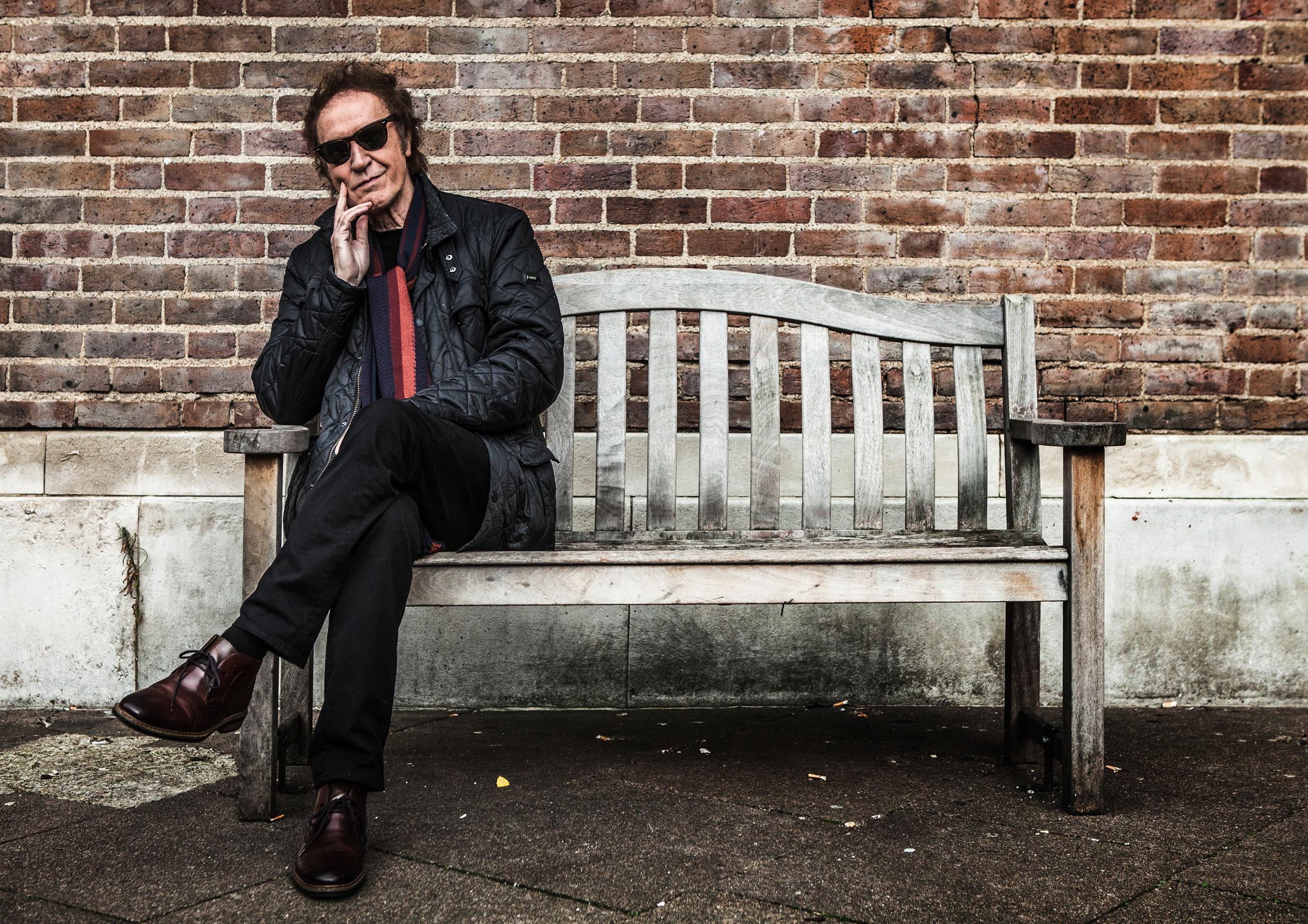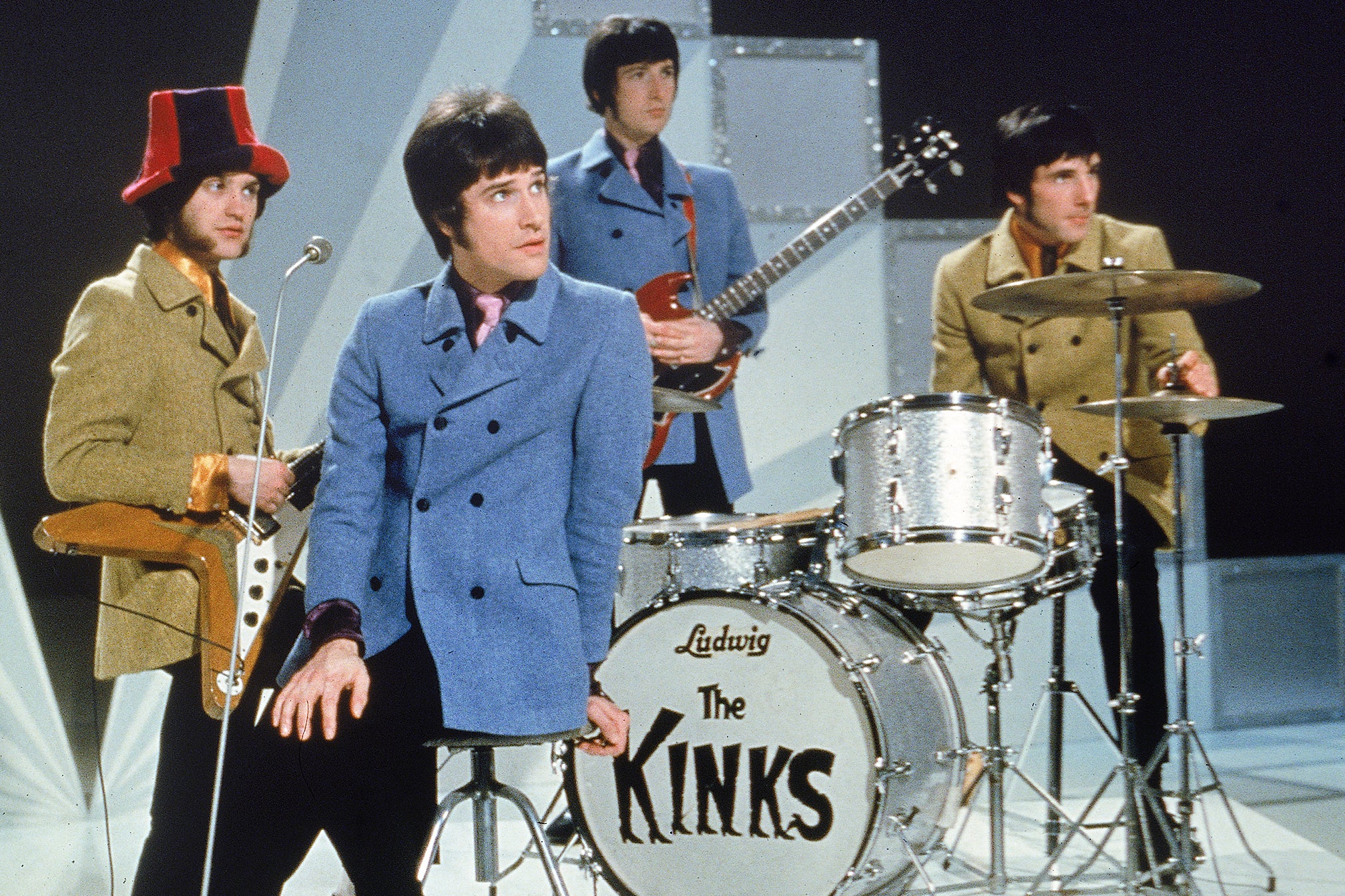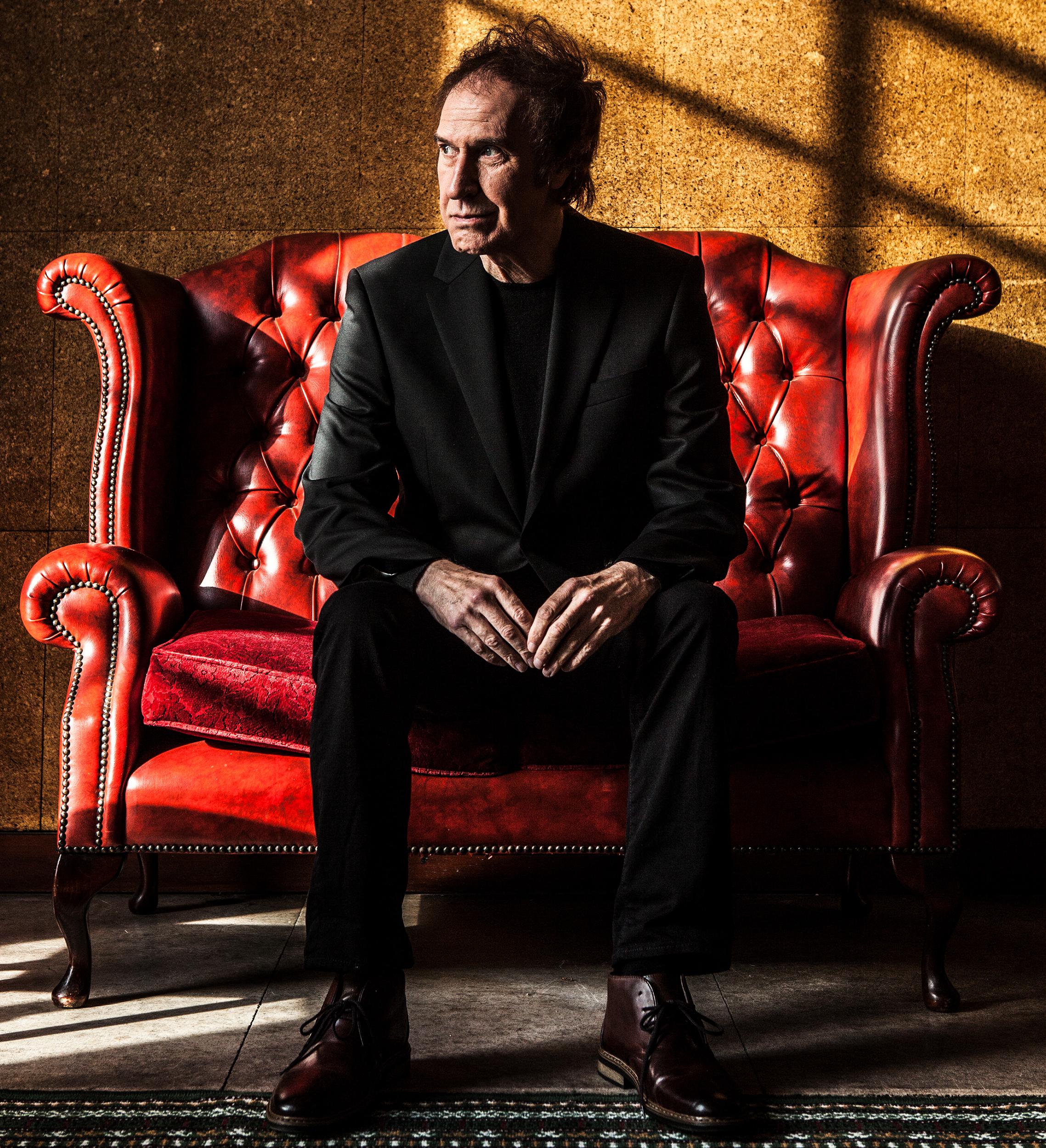Ray Davies: 'Everybody's haunted by a secret'
The Kinks legend speaks with The Independent about his new album 'Our Country: Americana II', American voodoo, and how music has become 'less of a weapon' than it used to be

Your support helps us to tell the story
From reproductive rights to climate change to Big Tech, The Independent is on the ground when the story is developing. Whether it's investigating the financials of Elon Musk's pro-Trump PAC or producing our latest documentary, 'The A Word', which shines a light on the American women fighting for reproductive rights, we know how important it is to parse out the facts from the messaging.
At such a critical moment in US history, we need reporters on the ground. Your donation allows us to keep sending journalists to speak to both sides of the story.
The Independent is trusted by Americans across the entire political spectrum. And unlike many other quality news outlets, we choose not to lock Americans out of our reporting and analysis with paywalls. We believe quality journalism should be available to everyone, paid for by those who can afford it.
Your support makes all the difference.“You seen this thing called Shazam?” Ray Davies asks. “I tried it last week.”
Sat in a quiet corner of a restaurant in Muswell Hill (where else?), the Kinks legend speaks in a husky, north London murmur, frequently turning the conversation around so he’s the one asking questions: “Where are you from? What do your parents do? Do you like Margaret Atwood? There was a good programme about her last night. You can get it on catch up...”
Davies, one of the greatest songwriters in history, is preparing to release Our Country: Americana II, the second of two albums serving as a companion piece to his 2013 memoir which explored, in thoughtful, moving detail, the country that offered him his earliest inspirations.
“It’s difficult,” he says of the new record. “It’s all the same project, to make it stand as two records is quite complicated. It’s got a through line where more of that story is covered in the second album.”
Much of it is about coming to terms with moving back to the UK, and “the costs of leaving the US”, he adds. For all the songs about Waterloo sunsets, village greens, strawberry jam and all the different varieties, Davies’s first love was America, borne out of the early Westerns he’d watch as a child: “A flickering black and white image out of an old movie projector.”
“The Wild West was what attracted me to America in the first place,” he says. “Even though I went through all that in New Orleans, I still have this innocent feeling about the US.”
Like its predecessor, Americana II is a work that documents Davies’s sometimes fractious, mostly fond relationship with the US. There are spoken word tracks read as diary extracts, including “Epilogue”, where Davies recalls asking his driver to go past the place where he got shot before heading to the airport. “The next time I see a zombie coming towards me on the street, I won’t let him spook me so much,” he promises.
There are a lot of zombies in the album. Zombies, Davies says, affect people everywhere: “It’s a crass overstatement. Everybody’s haunted by a secret. There are a lot of demons to confront in part two.”
There’s a whole army of them on “March Of The Zombies”, a slinky blues track that sashays into a big, classic swing band performance from a trio of 17-year-olds Davies found at the Royal Academy of Music in London. Country rock band The Jayhawks, who appeared on the first Americana album, also perform on this record, with keyboardist Karen Grotberg duetting with Davies on “The Real World”.
“We danced and partied at the Mardi Gras,” Davies sings softly now, smiling. “A real discovery – she’s a keyboard player with a really good voice, like a real Midwestern. Where’s our coffee?” He gets up, wanders off and comes back with a flustered looking waiter, who darts away again to fetch a latte and an Americano.
Enjoy unlimited access to 100 million ad-free songs and podcasts with Amazon Music
Sign up now for a 4 month free trial (3 months for non-Prime members)
Enjoy unlimited access to 100 million ad-free songs and podcasts with Amazon Music
Sign up now for a 4 month free trial (3 months for non-Prime members)
“The dream was to do the book then the record, then a show,” Davies continues. “It’s in the back of my mind, I want to make it happen at some point. I’m proud of it, and I’m looking for the next step now.”
If anything, the US he recalls on Americana II is easier to picture than it might have been five years ago, punctuated by Davies’s slightly sharp observations that cut through the whimsy of the romantic version he first saw on the big screen.
“The America we landed in as The Kinks was very right-wing, then you had people like Jimmy Carter, Obama, and now it’s come back round again,” he says. “A lot of my American friends are very worried.”

He bumped into Donald Trump at legendary New York nightclub Studio 54 one time, he recalls, and was offered a passing introduction: “People were dancing, he was talking...” He’s interested to hear Trump was actually involved, however slightly, in the music scene – as a promoter for the Rolling Stones, with Keith Richards recalling the moment he lost his temper and “pulled out my trusty blade, stuck it in the table and said: ‘You’ve got to get rid of this man!’”.
“Legend has it that Harvey Weinstein promoted The Kinks in Buffalo,” Davies says, mysteriously. (Weinstein ran a promotion company while he was a student at Buffalo University, booking shows with Frank Sinatra, the Rolling Stones and Stephen Stills.) “What goes around comes around,” he adds of the ongoing scandal, and then: “What do you think of that whole thing?”
One of his old friends, legendary groupie Pamela Des Barres, told The Independent earlier this year that she felt the music industry hadn’t undergone the same scandal as Hollywood because everything was “more out in the open”. Davies doesn’t comment; just smiles at the mention of her name and nods.
Des Barres mentions Davies on several occasions in her book I’m With The Band. In one chapter she recalls: “Ray Davies was Mr Sensitive, Mr Elegant, Mr Mystery. He made me swoon with his delicate dimples and gentle gap-toothed smile, and those lyrics!
“He truly understood the Hollywood addiction: ‘You can see all the stars as you walk down Hollywood Boulevard, some that you recognise, some that you’ve hardly even heard of. People who worked and suffered and struggled in vain.’”
Unlike LA, New Orleans attracted Davies because it’s “not really part of America. it’s a bit French, bit Afro-Cuban”, and you hear that on the record: on “A Street Called Hope” there’s a distinct French twist to the guitar style that recalls a blissed-out version of Django Reinhardt with the Quintette du Hot Club de France. Then on the slightly mournful “Our Country” there’s an ambivalence as to which country Davies is singing about – the America he’s leaving behind or the England he’s returning to.
“The first person aspect, visiting these different places... it’s very personal,” he says. “I didn’t think I’d ever want to leave my country – that’s me leaving in the song. It’s not a right-wing thing, I suppose it’s on the verge, but it’s about assimilation. Anyone with nationalistic feeling, of being devoted to your home.”

“I’m trying to avoid it,” he says of Brexit, “I don’t even say the word. I’m very concerned. I don’t think everybody knew what they were voting for. It’s also a bit of a game that the media’s playing: ‘today it’s good, tomorrow it’s bad’.”
He murmurs an “outrageous” at the mention of recent comments by Morrissey, such as his claim that Berlin had become “the rape capital of Europe”, and compares the way he airs his views to “a Facebook mentality”.
There’s a marked contrast in how The Kinks portrayed Britain and how you picture it in songs by The Smiths – Davies calls it a “slightly generational thing” – where even a track like “Dead End Street” still sounds upbeat, “Still Ill” is infused with a bitterness at the country’s political failings (“England is mine, it owes me a living”).
And more recently on Davies’s new song “Our Country”, it’s less of an “our land not yours” message than an expression of love for the place that became Davies’s home; the America he always dreamed about travelling to, where a song like Morrissey’s 2004 track “Irish Blood, English Heart” features the rather transparent lyrics: “I’ve been dreaming of a time when/ To be English is not to be baneful/ To me standing by the flag not feeling shameful, racist or partial.”
“I like traditions,” Davies shrugs. “At the same time, I got disillusioned with them, I felt uncomfortable with Blair’s politics.” A friend of his became a member of parliament, he recalls, and told him she was joining the Labour Party: “I said: which Labour Party?”
He offers up some opinion on Jeremy Corbyn, asked whether he likes him, he responds: “’Like’ isn’t the word. I understand why he’s there. But to be a leader of a country now you’ve got to have so much chutzpah, and I don’t know if he’s got that.”
He switches the subject, asking what TV singing competition The Voice is like, and commends bands that “try not to take the X Factor route – that’s commendable.”
“Music gets very corporate now,” he adds. “It’s less of a weapon. [Playing guitar is] something you learn at prep school.”
He wants to hear about new acts he should listen to, and laughs when he hears about one of The Independent’s favourites, Joe Fox, covering “Well Respected Man” during an interview last year. “Where do you go to hear people like that?” he asks. “Is the Garage still open?” A mention of Jack White doing a set there recently prompts him to recall the time he once tried to sign the White Stripes: “I said to Jack, great band man, when’s the bass player turning up?”
Davies has been critical of modern songwriting in the past and still seems to feel that way, although “it’s not so bad now”, he says. “If you were just sitting in the room in a Nashville songwriting session a few years ago, you could get a writing credit.
“That’s something to work on: when a song is autobiographical but you want people to relate to it. That’s something I tried to work on with this record,” he continues. “I try to write that way. Otherwise it’s too much like a secret diary.”
Some of the most poignant moments on the record are, in fact, where Davies reads extracts from his book as spoken-word, with a lone-ranger, “Man in Black” Johnny Cash kind of vibe on “Epilogue”, where the guitar transitions to an Elvis Presley “Trouble” riff. “Not a bad thing,” Davies smiles.
By the end of the record you get the sense that Davies has confronted at least some of those demons he mentioned, reconciling himself with the experience of being shot in New Orleans in 2004 when he gave chase to armed muggers who stole his friend’s purse.
“There’s another song that’s going to be on the deluxe about the shooting, I do it like a cartoon,” he reveals. “‘Stetsons and Sweaty Sombreros’…” He chuckles, then remembers suddenly: “I stayed at a place near Rampart Street in New Orleans where there was a voodoo queen. She told me it’s gonna be OK.”
‘Our Country: Americana II’ is out on Friday 29 June via Legacy Recordings
Join our commenting forum
Join thought-provoking conversations, follow other Independent readers and see their replies
Comments